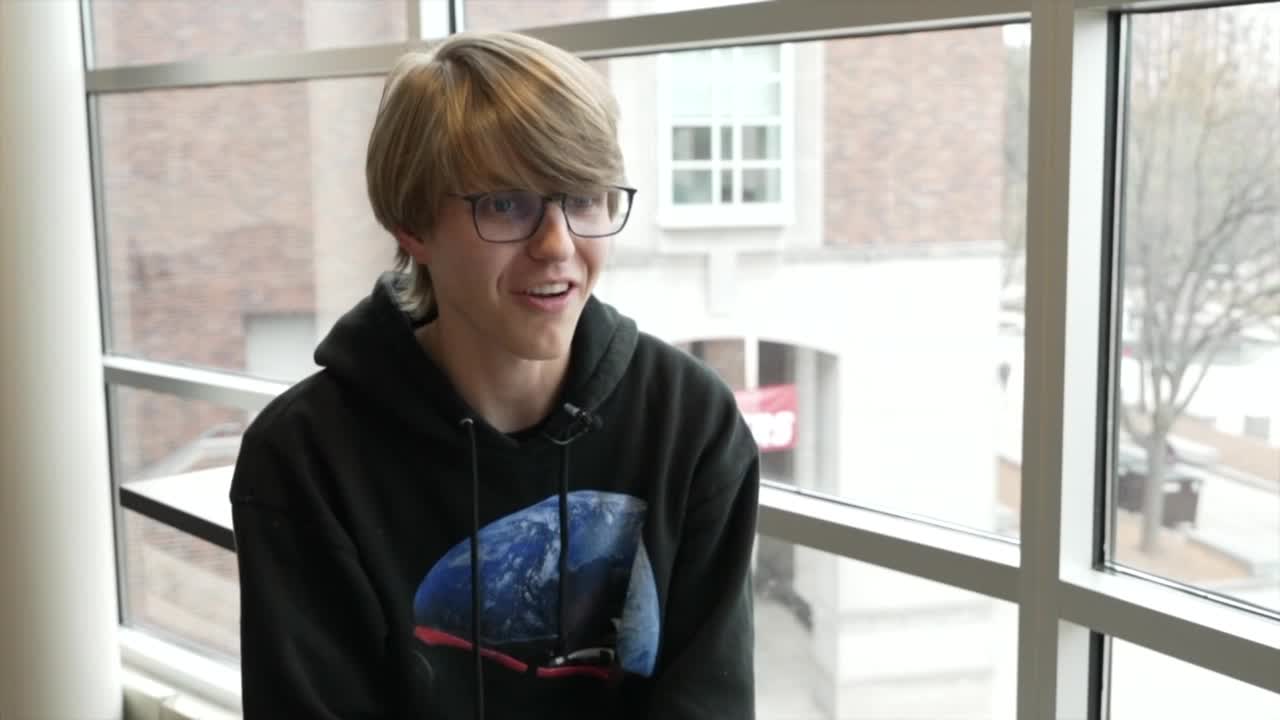LINCOLN, Neb (KMTV) — For months Luke Farritor has been on a mission to uncover a message that’s been lost for almost two millenniums.
“There was a library next to the city of Pompeii. That library was owned by Julius Caesar's father in law we are pretty sure. Of course Pompeii happens the volcano goes off and everything is buried in Lava,” said Farritor.
Found in the rubble of that library were hundreds of papyrus scrolls, the heat from the volcanic ash and debris carbonized the scrolls leaving them deformed but preserved.
Now researchers and students from across the country are trying to find out what they say, calling it the Vesuvius Challenge.
“They said hey, download the scans here and if you can find writing in them we will send you a bunch of money,” said Farritor.
Discerning the messages left in the scrolls started with Dr. Brent Scales at the University of Kentucky using X-ray tomography and computer imaging.
“We start with these CT scans of the scrolls. It’s the same scan you’d get if you go to the doctor. You start with that scan and the first thing you need to do is virtually unroll the scroll. Right now it’s like a spiral, like a thing of toilet paper, you have to virtually flatten that and isolate each square of the toilet paper,” said Farritor.
Even virtually unrolled the text on the scrolls was unable to be read that was until Luke brought his expertise in artificial intelligence to the project.
“You need to use the A.I. I developed to make that text visible and the ink visible,” said Farritor.
It took a lot of trial and error but Luke’s A.I. began finding letters in the scroll, first, it was just one, then two, and then he made the breakthrough discovery that has won him the first prize in the Vesuvius challenge.
“Of the ten letters that I found most of them spell out the word porphyrous, which means purple in Greek. I'm really glad the first word we found on the scroll isn’t is or and or the, it's purple,” said Farritor.
Finding porphyrous earned Luke $40,000 in prize money. But the challenge isn’t over yet, researchers are still offering a reward for the first four paragraphs found within the scroll and Luke wants to be the one to bring the ancient text back to life.
“I definitely want to read all the scrolls. That’s my current priority and it’s such an exciting avenue so I’ll definitely be pursuing that long term,” said Farritor.
The winner of the grand prize will earn $700,000 in prize money.
Download our apps today for all of our latest coverage.
Get the latest news and weather delivered straight to your inbox.



